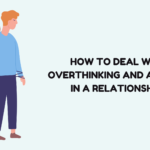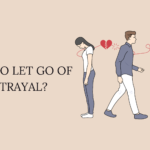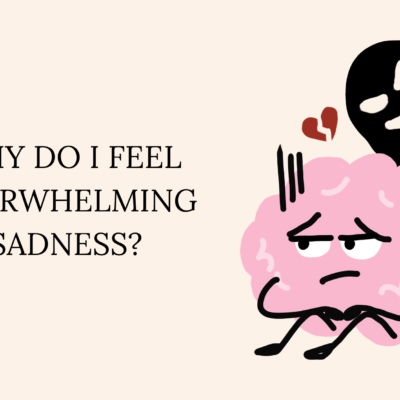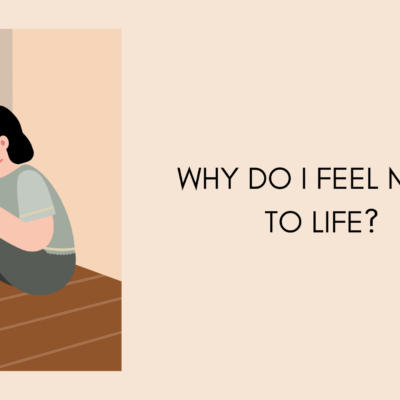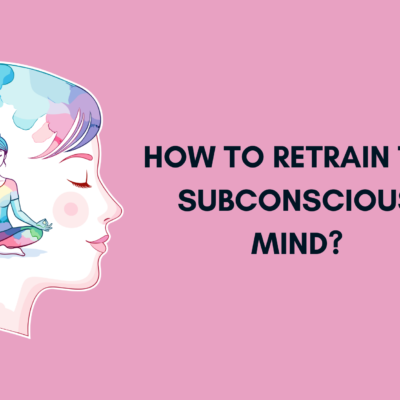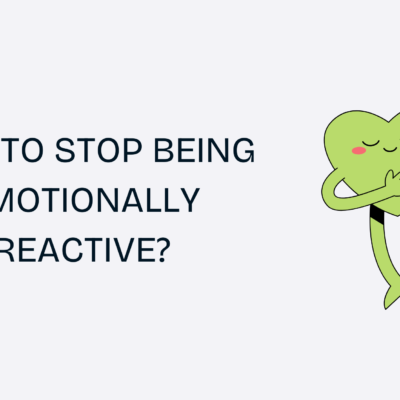Why Do I Feel so Empty and Numb: There are moments in life when, despite everything seeming “fine” on the outside, something inside feels off. You may find yourself staring at the ceiling, going through the motions, smiling on cue, yet feeling a heavy hollowness within — a strange emptiness and emotional numbness that’s hard to explain.
You may wonder: Why do I feel so empty and numb? What’s wrong with me? This article explores the possible causes, psychological roots, and steps you can take to understand and heal this emotional void.
Also Read:
Understanding Emotional Numbness
Emotional numbness is a state in which you feel disconnected from your emotions, thoughts, or surroundings. It’s like being alive, but not fully living — experiencing the world in grayscale, where nothing feels truly exciting, sad, or joyful. This isn’t just “feeling down”; it’s a detachment from your inner self.
This numbness often masks deeper emotional pain, fatigue, trauma, or mental overload. It’s your mind’s way of protecting itself — but over time, it becomes a prison that distances you from life’s richness.
Common Signs of Feeling Empty or Numb
- Lack of interest in things you once enjoyed
- Feeling emotionally flat or “robotic”
- Constant fatigue or apathy
- Disconnection from people or surroundings
- Inner restlessness, confusion, or lack of purpose
- A persistent “what’s the point?” feeling
- Wanting to cry but not being able to
- Inability to express or even identify emotions
Possible Causes Behind Feeling Empty and Numb
1. Emotional Suppression
If you’ve grown up in an environment where expressing feelings was discouraged or unsafe, you may have learned to suppress them. Over time, this turns into emotional numbness. Instead of processing emotions, you’ve learned to silence them.
“If you bottle things up for too long, eventually there’s nothing left to feel.”
2. Burnout or Chronic Stress
When the brain is constantly under stress — whether from work, caregiving, responsibilities, or emotional pressure — it can shut down emotionally to conserve energy. Emotional detachment becomes a coping mechanism.
3. Unprocessed Grief or Trauma
Unresolved grief, childhood wounds, or traumatic experiences can lead to numbness. The mind, overwhelmed by pain, creates a disconnect to survive.
This trauma doesn’t have to be extreme. It can include:
- Losing a loved one
- A difficult breakup
- Emotional neglect in childhood
- Bullying
- A life-altering event
Even if you’ve “moved on,” the emotional residue may linger in silence.
4. Depression
Depression doesn’t always show up as sadness. For many, it appears as emptiness, lack of motivation, and numbness. You might not feel intense sadness, but rather a dull, heavy void.
This is especially common in what’s called high-functioning depression, where a person goes through daily life, works, socializes — but internally, they feel nothing at all.
5. Disconnection from Purpose
Sometimes, we’re not living a life aligned with our deeper values. If your routine feels meaningless or you’re stuck in a situation that lacks fulfillment, you can start to feel empty. The absence of purpose is often mistaken for emotional numbness.
6. Isolation and Loneliness
Humans are social beings. Extended periods of isolation — whether physical or emotional — can make a person feel cut off from the world. You may have people around, but still feel unseen or disconnected.
7. Overstimulation or Emotional Overload
In a world of constant notifications, overwhelming responsibilities, and endless mental input, our emotional systems can get overstimulated. Eventually, we shut down to protect ourselves from feeling too much.
What Can You Do About It?
Healing from emptiness or numbness isn’t about “snapping out of it.” It’s about gradually reconnecting with your inner world and creating emotional safety. Here’s how:
1. Name What You’re Feeling — Or Not Feeling
Start by acknowledging the numbness without judgment. Sit with it. Ask:
- When did I start feeling this way?
- What was going on in my life back then?
- Is there a pattern or trigger?
Awareness is the first step to understanding.
2. Create Space for Emotions
Often, numbness is a sign that emotions are buried deep inside. Let yourself cry. Journal without editing. Talk to someone safe. Listen to music that evokes emotion. Watch something that makes you feel.
You don’t need to rush healing — just create moments where feelings are allowed.
3. Reconnect With the Body
Emotional numbness often comes with disconnection from the body. Grounding practices like:
- Walking barefoot on grass
- Practicing slow yoga or stretching
- Breathing deeply
- Taking mindful showers
help reawaken your senses and create presence.
4. Break Monotony
Sometimes, emptiness stems from routine overload. Try something new — even small:
- Visit a new café
- Paint or create something
- Take a different route to work
- Spend time in nature
These moments help you reconnect with aliveness.
5. Talk to Someone
You don’t need to go through this alone. Therapy or counseling can help uncover suppressed emotions, trauma, or depressive patterns. Sometimes just putting feelings into words is incredibly healing.
Even talking to a friend and saying, “I don’t know what’s wrong, but I feel numb inside” can be a powerful start.
6. Limit Overstimulation
Cut back on social media, doomscrolling, or multitasking. Emptiness can grow when we’re constantly feeding our minds but starving our hearts.
Replace passive consumption with:
- Reading
- Journaling
- Gardening
- Creative hobbies
7. Reflect on Meaning and Purpose
Ask yourself:
- What used to make me feel alive?
- What values matter to me deeply?
- What would I do if I didn’t care about failure?
You don’t have to find all the answers today. But leaning into curiosity helps you rediscover purpose.
8. Be Kind to Yourself
Feeling numb isn’t a failure. It’s a survival response. Your brain and body are trying to protect you.
Instead of self-blame, try compassion:
- Rest when tired
- Forgive your pace
- Let go of “shoulds”
You’re not broken — you’re healing.
When to Seek Help
If your numbness or emptiness has lasted for several weeks or months, or if it’s affecting your ability to function, please consider reaching out to a mental health professional. It may be a sign of depression, PTSD, or other conditions that benefit from treatment.
Warning signs to watch for:
- Thoughts of hopelessness or self-harm
- Total withdrawal from relationships
- Persistent fatigue or sleep issues
- Using substances to escape
There is support, and you deserve to feel whole again.
Final Thoughts
Feeling empty and numb doesn’t mean you’re weak, dramatic, or broken. It means something inside you needs care, attention, and healing.
It’s okay to not know why you feel this way. It’s okay to not have it all figured out.
The journey to reconnect with yourself might be slow — but every small step matters. One journal entry. One deep breath. One honest conversation. That’s how you begin.
Emotional numbness may silence the heart for a while, but it never truly takes away its capacity to feel. With time, support, and intention, the colors return. The world becomes a little warmer. And slowly, you come back to yourself.
You are not alone. And you won’t feel this way forever.

